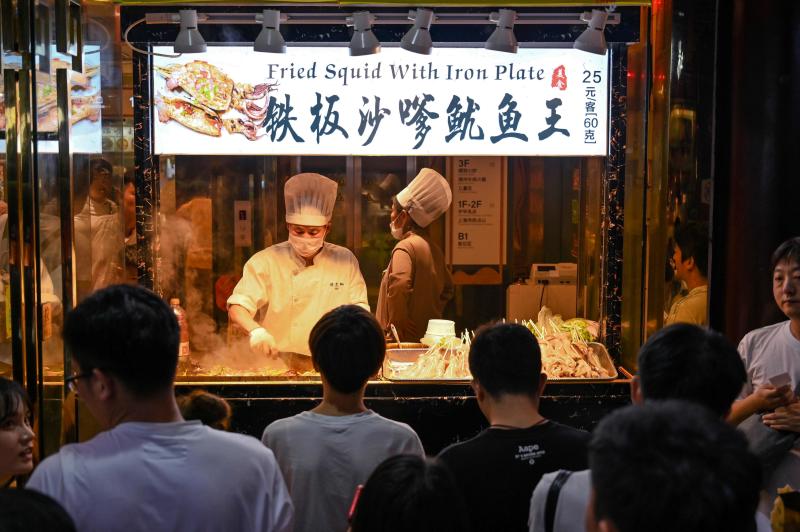China urges citizens to cut consumption of oils, sugar and salt
Sign up now: Get insights on Asia's fast-moving developments

China is targeting daily salt intake of less than 5g per person by 2030 from an average of 10.5g in 2012, and sugar consumption of less than 25g from 30g.
PHOTO: AFP
BEIJING (BLOOMBERG) - China is calling on its people to reduce their intake of edible oils, sugar and salt as part of a nationwide campaign to minimise health risks.
The country is the world's top consumer of soybean oil, processed from imported beans, and the biggest user of sugar after India.
The nation is targeting daily consumption of oils no higher than 25g-30g per adult by 2030, down from an average intake of 42.1g in 2012, Ding Gangqiang, head of the National Institute for Nutrition and Health, said at a press conference this week, which coincided with the State Council's launch of its campaign, Action for a Healthy China.
"Unreasonable dietary behaviour, especially more intake of salt, edible oils and sugar are the major factors hurting people's health," Zhang Zhiqiang, a department director with China's National Health Commission, said at the same conference.
Unhealthy diets can lead to obesity, diabetes, stroke and heart disease among other ailments, he said.
Fried food is popular among Chinese people, with fish and beef in hot chilli oil widely served in restaurants. The country's consumption of soybean oil has increased more than four times since the turn of the century, and the nation is also the third-largest consumer of palm oil.
China is targeting daily salt intake of less than 5g per person by 2030 from an average of 10.5g in 2012, and sugar consumption of less than 25g from 30g.
Sweet soft drinks are blamed for the high rate of obesity among youngsters, said Ding from the National Institute.
The limits will be encouraged in restaurants, schools, institutions and at home, while food companies will be asked to display them on packaging, Ding said.


